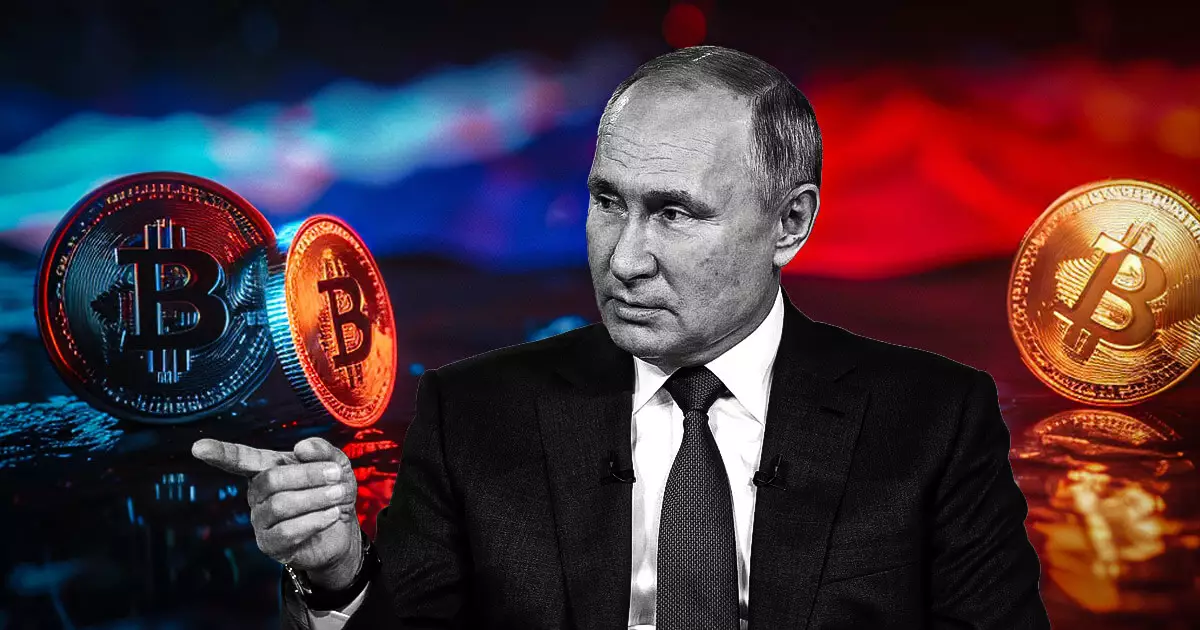In a world increasingly driven by technology, Russian President Vladimir Putin has vocalized strong support for Bitcoin and digital currencies. During the Investment Forum held in Moscow on December 4, Putin proclaimed that these forms of currency are not only important but also inevitable in the global economic landscape. His assertions mark a significant turning point in the perception of cryptocurrency, particularly in relation to traditional fiat currencies like the US dollar. By emphasizing Bitcoin’s role as a potential global reserve asset, Putin positions it as a viable alternative to the dollar, which he claims is often weaponized by the US government to advance its political objectives.
Putin’s criticism of the dominance of the US dollar reveals his concerns over financial sovereignty. He cited the freezing of $300 billion in Russian reserves by Western nations after the onset of the Ukraine conflict as a key example of how the dollar system can be exploited for geopolitical leverage. This incident has triggered a reevaluation among numerous countries regarding their reliance on the dollar, prompting many to explore decentralized alternatives that insulate them from political maneuvering, such as Bitcoin. Through these remarks, Putin argues for a more democratized financial system that isn’t tethered to one nation’s policies.
Legal Frameworks and Economic Strategy
In light of these changes, Russia is also implementing laws to formally recognize cryptocurrencies as property. The new legislation aims to provide tax benefits for digital transactions and alleviate burdens on crypto mining and sales by exempting them from value-added tax (VAT). This strategic move illustrates Russia’s commitment to harnessing digital innovation within its financial infrastructure, serving both as a response to external pressures and a way to cater to domestic demands for more reliable and efficient financial systems.
The ongoing Ukrainian conflict has underscored the role of cryptocurrencies in circumventing stringent sanctions. Individuals on both sides have utilized Bitcoin to send and receive funds in spite of traditional banking challenges, showcasing the unique capabilities of digital currencies. This has led to widespread acceptance and use of cryptocurrencies as essential financial tools in turbulent times. Furthermore, discussions at the BRICS summit highlighted the potential for digital currencies to revamp cross-border payment systems, challenging the established order dominated by legacy financial institutions.
Putin’s pro-cryptocurrency stance stands in stark contrast with recent initiatives by U.S. leaders, indicating a burgeoning global conversation around digital finance. The potential creation of a national Bitcoin reserve in the U.S., as proposed by President-elect Donald Trump, suggests a shift towards a more favorable regulatory environment for cryptocurrency. This creates a landscape where progressive policies could stem from the U.S. while spurring other nations to rethink their own approaches to digital currencies.
Putin’s endorsement of Bitcoin and advocacy for its adoption signify a paradigm shift in global finance. As countries worldwide grapple with the implications of cryptocurrencies, Putin’s remarks underscore the necessity for nations to consider new frameworks that promote economic stability and protect financial sovereignty in the modern era.


Leave a Reply